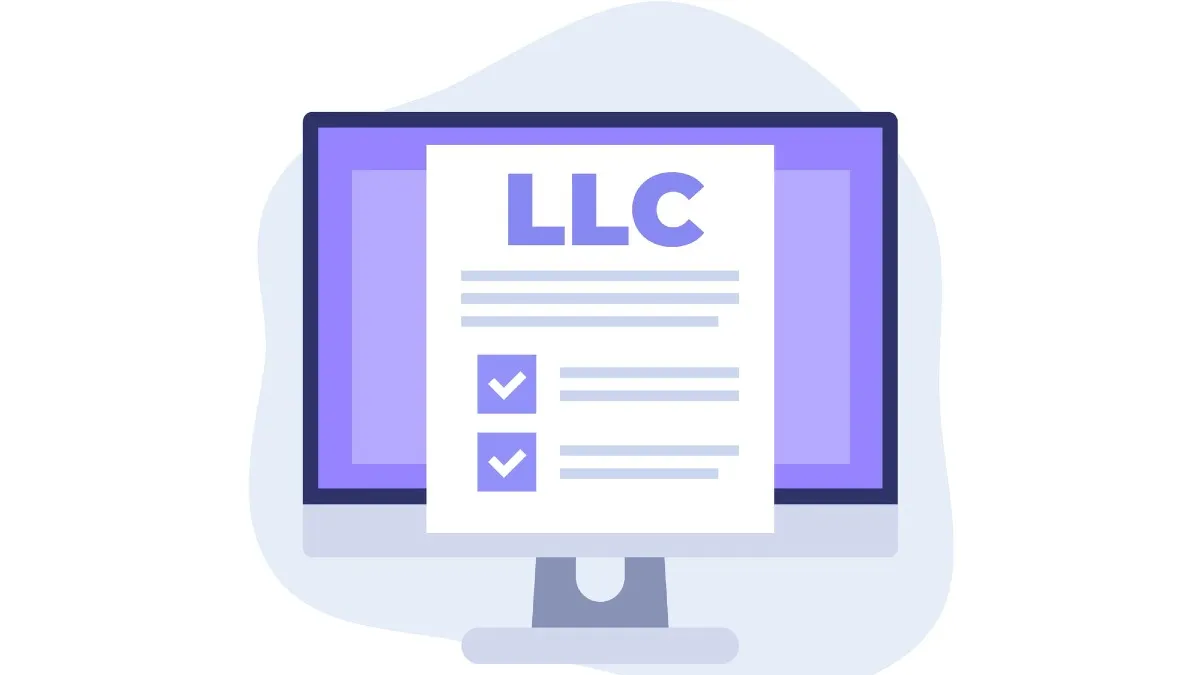A Limited Liability Company (LLC) provides a firewall between your business and personal assets, making it the most popular structure for freelancers and gig workers. Here is a guide to the key benefits of forming an LLC and the simple, step-by-step process for getting started.
Why Your Side Hustle Needs an LLC
The biggest difference between an LLC and an informal sole proprietorship is the protection it provides you as the owner.
1. Personal Asset Protection (The "Limited Liability" Shield)
- What it does: The most important feature. The LLC is a separate legal entity from you. If your business is sued for debt, breach of contract, or client liability, only the business's assets (its bank account, equipment) are generally at risk.
- The alternative: As a sole proprietor, your personal assets—your home, car, and personal savings—are legally tied to the business and could be targeted in a lawsuit. The LLC creates the "corporate veil" to shield them.
2. Professional Credibility
- Client Trust: Using an LLC designation signals to clients, partners, and vendors that you operate a serious, established business, not just a casual hobby.
- Bigger Contracts: Some larger companies require contractors to be registered entities, making the LLC a prerequisite for higher-paying corporate projects.
3. Tax Simplicity (Pass-Through)
- No Double Taxation: By default, the LLC is a "pass-through entity." The business itself doesn't pay income tax; all profits and losses "pass through" directly to your personal tax return (Schedule C). This avoids the double taxation issues faced by corporations.
- Tax Flexibility: Once established, an LLC gives you the option to later elect taxation as an S-Corp, which can lead to significant self-employment tax savings for high-earning side hustlers.
7 Simple Steps to Set Up Your LLC
Setting up an LLC is handled at the state level, and requirements vary slightly, but the core process is universal.
Step 1: Name Your Business
The name must be unique and distinguishable from other businesses registered in your state.
- Check Availability: Use your state’s Secretary of State website to perform a business entity search.
- Required Designation: The name must end with an approved designator, such as "Limited Liability Company" or "LLC."
Step 2: Choose Your Registered Agent
Every LLC must have a Registered Agent—an individual or company designated to receive legal documents (like lawsuits or tax notices) on behalf of the business.
- The Requirement: The agent must be located in the state where the LLC is formed and be available during regular business hours.
- Privacy Consideration: Many side hustlers pay a registered agent service to keep their personal home address off the public record.
Step 3: File Your Articles of Organization
This is the main legal document that officially registers your LLC with the state.
- Filing: This form (sometimes called a Certificate of Formation) is filed with your Secretary of State's office. You can typically file online.
- Fees: Be prepared to pay a state filing fee, which varies widely (e.g., from $50 to over $500 depending on the state).
Step 4: Draft an Operating Agreement
An Operating Agreement is an internal document that legally defines how your LLC will run.
- Single-Member LLCs: Even if you're running the side hustle solo, this document is essential. It proves the business is separate from you and helps maintain the liability shield.
- Multi-Member LLCs: If you have partners, the agreement defines ownership percentage, voting rights, profit distribution, and what happens if a member leaves.
Step 5: Get an Employer Identification Number (EIN)
The EIN is a unique nine-digit number issued by the IRS, acting as the business's Social Security Number.
- Requirement: All multi-member LLCs must have an EIN. Single-member LLCs are not required to get one unless they hire employees, but it is highly recommended.
- Benefit: Use the EIN instead of your personal SSN on contracts, tax forms, and when opening bank accounts, which enhances privacy. You can apply for free on the IRS website.
Step 6: Open a Dedicated Business Bank Account
This is a non-negotiable step to maintain the legal separation of the LLC.
- Protect the Shield: If you mix (commingle) personal and business funds, a court could decide the LLC is not a true separate entity, destroying your personal liability protection.
- Tax Clarity: A dedicated account simplifies bookkeeping and makes tax filing much cleaner.
Step 7: Handle Local Licensing and Annual Compliance
Check with your city or county to see if you need a general business license or any occupational permits related to your specific work. Remember to file your Annual Report (and pay the associated annual state fee) to keep your LLC in "good standing."
Conclusion: Trading Complexity for Protection
Starting an LLC adds a little paperwork and an annual fee, but the peace of mind is invaluable. By following these seven steps, you transform your profitable side hustle into a professional, legally protected business that is set up for long-term growth.






